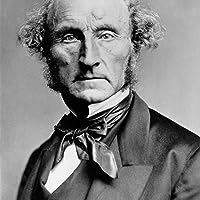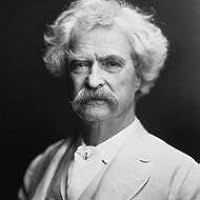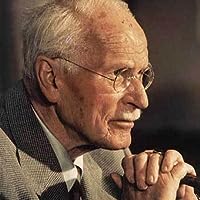Ethics Quotes
Quotes tagged as "ethics"
Showing 31-60 of 1,862

“Whatever is my right as a man is also the right of another; and it becomes my duty to guarantee as well as to possess.”
― Rights of Man
― Rights of Man

“I suppose therefore that all things I see are illusions; I believe that nothing has ever existed of everything my lying memory tells me. I think I have no senses. I believe that body, shape, extension, motion, location are functions. What is there then that can be taken as true? Perhaps only this one thing, that nothing at all is certain.”
―
―

“War is an ugly thing, but not the ugliest of things: the decayed and degraded state of moral and patriotic feeling which thinks that nothing is worth a war, is much worse. When a people are used as mere human instruments for firing cannon or thrusting bayonets, in the service and for the selfish purposes of a master, such war degrades a people. A war to protect other human beings against tyrannical injustice; a war to give victory to their own ideas of right and good, and which is their own war, carried on for an honest purpose by their free choice, — is often the means of their regeneration. A man who has nothing which he is willing to fight for, nothing which he cares more about than he does about his personal safety, is a miserable creature who has no chance of being free, unless made and kept so by the exertions of better men than himself. As long as justice and injustice have not terminated their ever-renewing fight for ascendancy in the affairs of mankind, human beings must be willing, when need is, to do battle for the one against the other.”
― Principles of Political Economy
― Principles of Political Economy

“You have just dined, and however scrupulously the slaughterhouse is concealed in the graceful distance of miles, there is complicity.”
―
―

“The law of evolution is that the strongest survives!' 'Yes, and the strongest, in the existence of any social species, are those who are most social. In human terms, most ethical...There is no strength to be gained from hurting one another. Only weakness.”
―
―

“Conscience is the inner voice that warns us somebody may be looking.”
― A Mencken Chrestomathy
― A Mencken Chrestomathy

“It is naively assumed that the fact that the majority of people share certain ideas and feelings proves the validity of these ideas and feelings. Nothing could be further from the truth. Consensual validation as such has no bearing on reason or mental health.”
―
―

“It is taboo in our society to criticize a persons religious faith... these taboos are offensive, deeply unreasonable, but worse than that, they are getting people killed. This is really my concern. My concern is that our religions, the diversity of our religious doctrines, is going to get us killed. I'm worried that our religious discourse- our religious beliefs are ultimately incompatible with civilization.”
―
―

“Not only is there often a right and wrong, but what goes around does come around, Karma exists, chickens do come home to roost, and as my mother, Phyllis, liked to say, “There is always a day of reckoning.” The good among the great understand that every choice we make adds to the strength or weakness of our spirits—ourselves, or to use an old fashioned word for the same idea, our souls. That is every human’s life work: to construct an identity bit by bit, to walk a path step by step, to live a life that is worthy of something higher, lighter, more fulfilling, and maybe even everlasting.”
― The Good Among the Great: 19 Traits of the Most Admirable, Creative, and Joyous People
― The Good Among the Great: 19 Traits of the Most Admirable, Creative, and Joyous People

“Create all the happiness you are able to create; remove all the misery you are able to remove. Every day will allow you, --will invite you to add something to the pleasure of others, --or to diminish something of their pains.”
―
―

“Right is right, and wrong is wrong, and a body ain’t got no business doing wrong when he ain’t ignorant and knows better.”
― The Adventures of Huckleberry Finn
― The Adventures of Huckleberry Finn

“If there were a party of those who aren't sure they're right, I'd belong to it.
(as quoted by Tony Judt)”
―
(as quoted by Tony Judt)”
―

“What I'm asking you to entertain is that there is nothing we need to believe on insufficient evidence in order to have deeply ethical and spiritual lives.”
―
―
“But with dogs, we do have "bad dog." Bad dog exists. "Bad dog! Bad dog! Stole a biscuit, bad dog!" The dog is saying, "Who are you to judge me? You human beings who’ve had genocide, war against people of different creeds, colors, religions, and I stole a biscuit?! Is that a crime? People of the world!"
"Well, if you put it that way, I think you’ve got a point. Have another biscuit, sorry.”
― Glorious
"Well, if you put it that way, I think you’ve got a point. Have another biscuit, sorry.”
― Glorious

“The wise man does not expose himself needlessly to danger, since there are few things for which he cares sufficiently; but he is willing, in great crises, to give even his life--knowing that under certain conditions it is not worth while to live. He is of a disposition to do men service, though he is ashamed to have a service done to him. To confer a kindness is a mark of superiority; to receive one is a mark of subordination... He does not take part in public displays... He is open in his dislikes and preferences; he talks and acts frankly, because of his contempt for men and things... He is never fired with admiration, since there is nothing great in his eyes. He cannot live in complaisance with others, except it be a friend; complaisance is the characteristic of a slave... He never feels malice, and always forgets and passes over injuries... He is not fond of talking... It is no concern of his that he should be praised, or that others should be blamed. He does not speak evil of others, even of his enemies, unless it be to themselves. His carriage is sedate, his voice deep, his speech measured; he is not given to hurry, for he is concerned about only a few things; he is not prone to vehemence, for he thinks nothing very important. A shrill voice and hasty steps come to a man through care... He bears the accidents of life with dignity and grace, making the best of his circumstances, like a skillful general who marshals his limited forces with the strategy of war... He is his own best friend, and takes delight in privacy whereas the man of no virtue or ability is his own worst enemy, and is afraid of solitude.”
― Ethics: The Nicomachean Ethics.
― Ethics: The Nicomachean Ethics.

“It is a self-deception of philosophers and moralists to imagine that they escape decadence by opposing it. That is beyond their will; and, however little they acknowledge it, one later discovers that they were among the most powerful promoters of decadence.”
― The Will to Power
― The Will to Power

“While we ourselves are the living graves of murdered beasts, how can we expect any ideal conditions on this earth?”
―
―

“Animals are more than ever a test of our character, of mankind's capacity for empathy and for decent, honorable conduct and faithful stewardship. We are called to treat them with kindness, not because they have rights or power or some claim to equality, but in a sense because they don't; because they all stand unequal and powerless before us.”
― Dominion: The Power of Man, the Suffering of Animals, and the Call to Mercy
― Dominion: The Power of Man, the Suffering of Animals, and the Call to Mercy

“What really frightens and dismays us is not external events themselves, but the way in which we think about them. It is not things that disturb us, but our interpretation of their significance.”
―
―

“Ours is a world of nuclear giants and ethical infants. We know more about war than we know about peace, more about killing than we know about living. We have grasped the mystery of the atom and rejected the Sermon on the Mount.”
―
―

“True education does not consist merely in the acquiring of a few facts of science, history, literature, or art, but in the development of character.”
―
―

“Acting responsibly is not a matter of strengthening our reason but of deepening our feelings for the welfare of others.”
― Sophie’s World
― Sophie’s World

“The thinking (person) must oppose all cruel customs, no matter how deeply rooted in tradition and surrounded by a halo. When we have a choice, we must avoid bringing torment and injury into the life of another.”
―
―

“What one generation finds ridiculous, the next accepts; and the third shudders when it looks back on what the first did.”
―
―

“What other agents then are there, which, at the same time that they are under the influence of man's direction, are susceptible of happiness? They are of two sorts: (1) Other human beings who are styled persons. (2) Other animals, which, on account of their interests having been neglected by the insensibility of the ancient jurists, stand degraded into the class of things... But is there any reason why we should be suffered to torment them? Not any that I can see. Are there any why we should not be suffered to torment them? Yes, several. The day has been, I grieve to say in many places it is not yet past, in which the greater part of the species, under the denomination of slaves, have been treated by the law exactly upon the same footing as, in England for example, the inferior races of animals are still. The day may come, when the rest of the animal creation may acquire those rights which never could have been withholden from them but by the hand of tyranny. The French have already discovered that the blackness of the skin is no reason why a human being should be abandoned without redress to the caprice of a tormentor. It may come one day to be recognized, that the number of the legs, the villosity of the skin, or the termination of the os sacrum, are reasons equally insufficient for abandoning a sensitive being to the same fate. What else is it that should trace the insuperable line? Is it the faculty of reason, or, perhaps, the faculty of discourse? But a full-grown horse or dog is beyond comparison a more rational, as well as a more conversable animal, than an infant of a day, or a week, or even a month, old. But suppose the case were otherwise, what would it avail? the question is not, Can they reason? nor, Can they talk? but, Can they suffer? Why should the law refuse its protection to any sensitive being? The time will come when humanity will extend its mantle over everything which breathes.”
― The Principles of Morals and Legislation
― The Principles of Morals and Legislation

“A group experience takes place on a lower level of consciousness than the experience of an individual. This is due to the fact that, when many people gather together to share one common emotion, the total psyche emerging from the group is below the level of the individual psyche. If it is a very large group, the collective psyche will be more like the psyche of an animal, which is the reason why the ethical attitude of large organizations is always doubtful. The psychology of a large crowd inevitably sinks to the level of mob psychology. If, therefore, I have a so-called collective experience as a member of a group, it takes place on a lower level of consciousness than if I had the experience by myself alone.”
― The Archetypes and the Collective Unconscious
― The Archetypes and the Collective Unconscious
All Quotes
|
My Quotes
|
Add A Quote
Browse By Tag
- Love Quotes 97k
- Life Quotes 75.5k
- Inspirational Quotes 72.5k
- Humor Quotes 43.5k
- Philosophy Quotes 29.5k
- Inspirational Quotes Quotes 27k
- God Quotes 26k
- Truth Quotes 23.5k
- Wisdom Quotes 23.5k
- Romance Quotes 23k
- Poetry Quotes 22k
- Death Quotes 20k
- Happiness Quotes 18.5k
- Life Lessons Quotes 18.5k
- Hope Quotes 18k
- Faith Quotes 18k
- Quotes Quotes 16.5k
- Inspiration Quotes 16.5k
- Spirituality Quotes 15k
- Religion Quotes 15k
- Motivational Quotes 15k
- Writing Quotes 14.5k
- Relationships Quotes 14.5k
- Life Quotes Quotes 14k
- Love Quotes Quotes 13.5k
- Success Quotes 13.5k
- Time Quotes 12.5k
- Motivation Quotes 12k
- Science Quotes 11.5k
- Knowledge Quotes 11k


